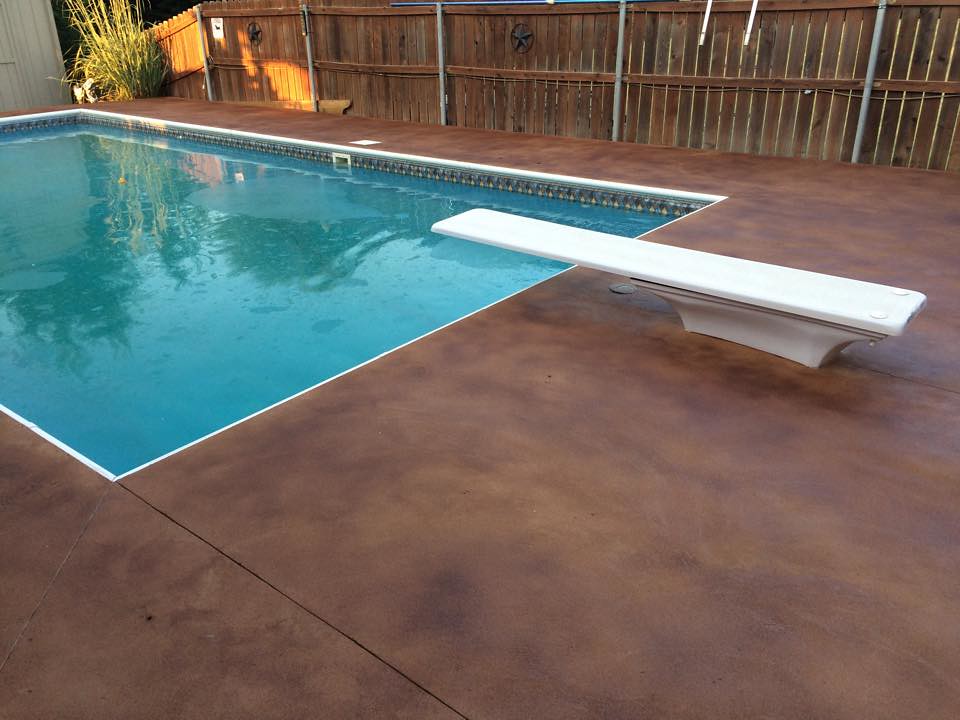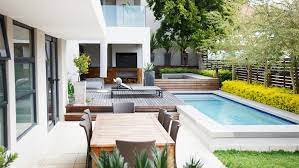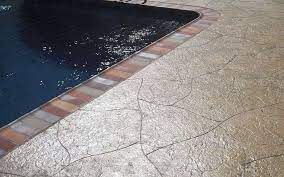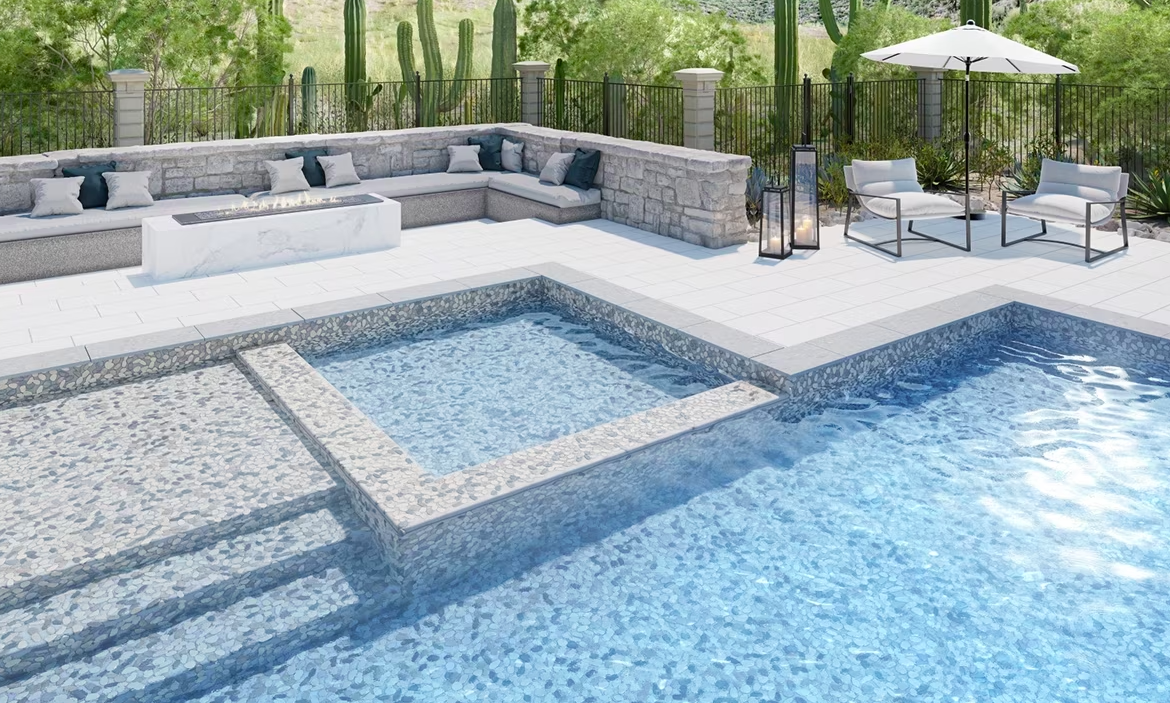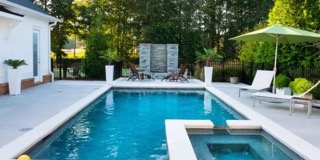Enhance your Phoenix pool area with a solution that combines comfort and safety. Imagine stepping onto a pool deck that is not only slip-resistant but also cool to the touch, providing a pleasant environment for relaxation. The benefits of rubber deck resurfacing go beyond aesthetics, offering practical advantages that cater to various needs. Consider the possibilities this innovative option brings to your poolside experience.
Benefits of Rubber Pool Decks
When considering pool deck options in Phoenix’s hot climate, the benefits of rubber pool decks become apparent. Unlike traditional materials like concrete or stone, rubber pool decks offer a softer alternative that provides comfort and safety for your poolside oasis. In Phoenix, where temperatures can soar, having a cool deck surface is essential, and rubber pool decks excel in maintaining a comfortable temperature even on scorching days.
Phoenix pool deck safety options are crucial, especially if you have children or elderly family members using the pool. Rubber pool decks are slip-resistant, offering peace of mind and reducing the risk of accidents. Additionally, the soft pool deck in Phoenix provides a cushioned surface that is gentle on feet, making it ideal for families with young children who love running around the pool area.
When it comes to maintenance, rubber pool decks are a cost-effective choice for Phoenix residents. The rubber surface is durable and requires minimal upkeep compared to other materials. Moreover, the rubber pool deck cost in Phoenix is reasonable, considering the long-term benefits it provides in terms of comfort, safety, and durability. Overall, opting for a rubber pool deck in Phoenix is a wise investment that ensures a comfortable, safe, and low-maintenance poolside experience.
Slip-Resistant Surface Features
Rubber pool decks feature specially engineered surfaces that prioritize slip resistance to ensure safety and peace of mind around your Phoenix pool area. The unique composition of rubber deck surfaces provides excellent traction even when wet, reducing the risk of slips and falls for you and your guests. This slip-resistant feature is especially crucial in a poolside environment where water splashes are common.
The texture of rubber pool decks plays a significant role in enhancing their slip resistance. Many rubber deck surfaces are designed with patterns or textures that create friction, increasing grip and stability. This added traction not only improves safety but also offers a comfortable and secure surface for walking barefoot around your pool.
Furthermore, rubber deck surfaces are resilient to various weather conditions, maintaining their slip-resistant properties even under extreme heat or rain. This durability ensures long-lasting safety around your pool area, providing you with peace of mind year-round.
When considering rubber deck resurfacing for your Phoenix pool, prioritizing slip resistance is key to creating a safe and enjoyable outdoor space. By choosing a slip-resistant rubber deck surface, you can enhance the overall safety and comfort of your poolside oasis.
Temperature Control Benefits
Discover the remarkable benefits of temperature control offered by rubber pool deck resurfacing for your Phoenix poolside oasis. In the scorching heat of Phoenix, maintaining a comfortable poolside environment is crucial for enjoying your outdoor space. Rubber pool deck resurfacing helps in regulating the surface temperature of your pool deck, making it cooler to the touch compared to traditional concrete or wood decks.
Rubber decks have insulating properties that reduce heat absorption, keeping the surface cooler even on the hottest days. This means no more scalding your feet as you walk barefoot around the pool area. By choosing rubber resurfacing, you create a more enjoyable and safer environment for your family and guests to relax and have fun without worrying about discomfort from the hot deck.
Additionally, the temperature control benefits of rubber pool decks extend to the pool itself. The cooler deck surface helps in maintaining the water temperature by reducing heat transfer from the deck to the pool. This can result in more pleasant water temperatures, especially during the intense summer months in Phoenix. Enjoy a refreshing dip in your pool without feeling like you’re swimming in a bathtub.
Investing in rubber pool deck resurfacing not only enhances the aesthetics of your pool area but also significantly improves the comfort level, making it a wise choice for your Phoenix poolside oasis.
Low Maintenance Requirements
Maintaining rubber pool decks requires minimal effort and attention due to their durable and resilient nature, making them an excellent choice for those seeking low maintenance poolside solutions. Rubber deck surfaces are designed to withstand harsh weather conditions, heavy foot traffic, and pool chemicals without requiring intensive upkeep. Unlike traditional concrete or wood decks that may need frequent sealing, staining, or repairs, rubber decks are inherently low maintenance.
To keep your rubber pool deck in top condition, regular cleaning is key. Simply sweeping away debris and dirt with a broom or rinsing the surface with a hose can help prevent buildup and maintain the deck’s appearance. For tougher stains or dirt, a gentle soap and water solution can be used for cleaning. Additionally, periodic inspections for any signs of wear or damage can help address small issues before they escalate, ensuring the longevity of your rubber deck.
The minimal maintenance requirements of rubber pool decks make them a convenient choice for homeowners looking to spend more time enjoying their pool and less time on upkeep tasks. With their ability to resist fading, cracking, and mold growth, rubber decks offer a hassle-free solution for creating a comfortable and long-lasting poolside retreat.
Is Rubber Resurfacing Right for You?
Considering the minimal upkeep required and the durability of rubber pool decks, evaluating if this option aligns with your poolside needs is a practical step towards creating a hassle-free outdoor oasis. Rubber deck resurfacing can be an excellent choice if you seek a comfortable, safe, and long-lasting solution for your Phoenix pool area.
If you prioritize safety, rubber pool decks offer excellent slip resistance, even when wet. This feature is crucial, especially if you have children or elderly family members enjoying the pool. The soft and forgiving nature of rubber also provides a cushioned surface, reducing the risk of injuries from slips or falls.
Additionally, the ability of rubber to maintain a comfortable temperature under the scorching Phoenix sun makes it an ideal option for barefoot enjoyment. Unlike traditional pool deck materials that can become unbearably hot, rubber stays cooler, ensuring a pleasant experience for poolside lounging.
Furthermore, the low maintenance requirements of rubber decks mean less time spent on upkeep and more time enjoying your pool. With minimal cleaning and no need for frequent refinishing, you can relax knowing that your pool deck will remain in top condition with minimal effort.
Key Takeaways
- Rubber deck resurfacing in Phoenix provides comfort and safety in hot climates.
- Slip-resistant surfaces enhance traction and stability, ensuring safety around the pool.
- Regulate surface temperature for a cooler touch, creating a more enjoyable environment.
- Low maintenance requirements offer convenience and durability for long-lasting use.
- Ideal for families with children or elderly members seeking a safer and more comfortable pool experience.
Frequently Asked Questions
Can Rubber Pool Decks Withstand Extreme Heat in Phoenix?
Rubber pool decks in Phoenix can handle extreme heat. The durable material withstands high temperatures, ensuring longevity and safety. Despite the scorching sun, rubber decks remain cool to the touch, preventing discomfort. They provide a slip-resistant surface, making them ideal for pool areas. With minimal maintenance required, rubber deck resurfacing is a practical choice for your Phoenix oasis. Enjoy a worry-free, comfortable pool experience even in the desert heat.
Is Rubber Deck Resurfacing Suitable for Saltwater Pools?
Yes, rubber deck resurfacing is suitable for saltwater pools. The material’s durability and resistance to chemicals and water make it an excellent choice for saltwater environments. Rubber surfaces also provide a comfortable and slip-resistant surface for your pool deck. Consider rubber deck resurfacing to enhance the safety and aesthetics of your saltwater pool area in Phoenix.
How Long Does a Rubber Pool Deck Typically Last?
A rubber pool deck typically lasts around 10-15 years with proper maintenance and care. Regular cleaning and avoiding harsh chemicals can help prolong its lifespan. Factors like weather conditions and usage frequency may impact durability. Keeping an eye out for any signs of wear and tear, such as cracks or fading, can indicate when it’s time for a new rubber deck resurfacing. Regular inspections and maintenance can help maximize the longevity of your rubber pool deck.
Can Rubber Pool Decks Be Customized in Terms of Color and Design?
Yes, rubber pool decks can be customized in terms of color and design to suit your preferences. You have the flexibility to choose from a variety of colors and patterns, allowing you to create a personalized look for your pool deck. This customization option ensures that your rubber deck not only provides comfort and safety but also complements the overall aesthetic of your Phoenix pool area.
Does Rubber Pool Deck Resurfacing Require Professional Installation?
Yes, rubber pool deck resurfacing typically requires professional installation to ensure proper adhesion, durability, and overall quality. Professionals have the expertise and tools necessary to complete the installation efficiently and effectively. Although DIY kits are available, hiring a professional for rubber deck resurfacing is recommended to achieve the best results and ensure long-lasting performance. Consider consulting with a professional to discuss your specific needs and options for installation.

